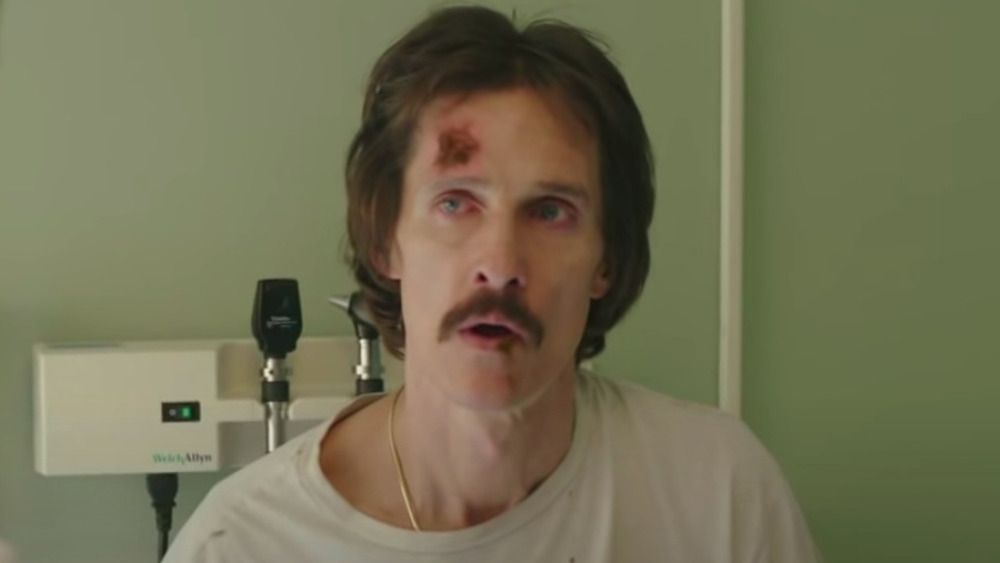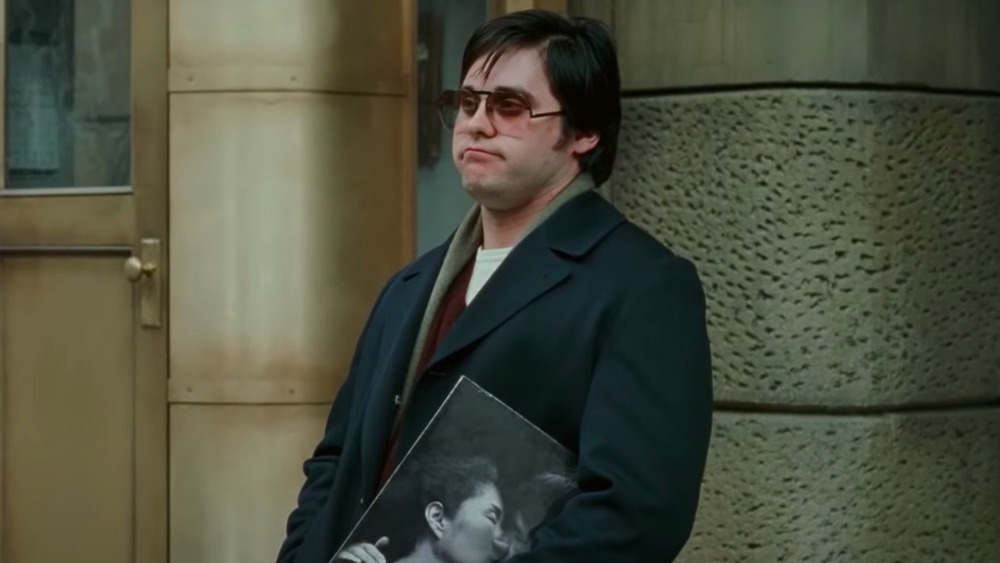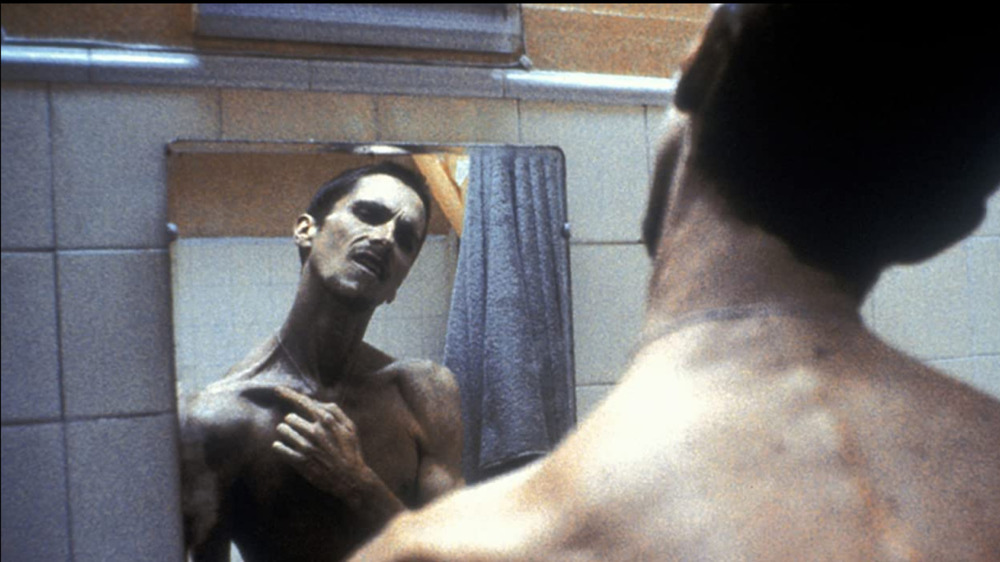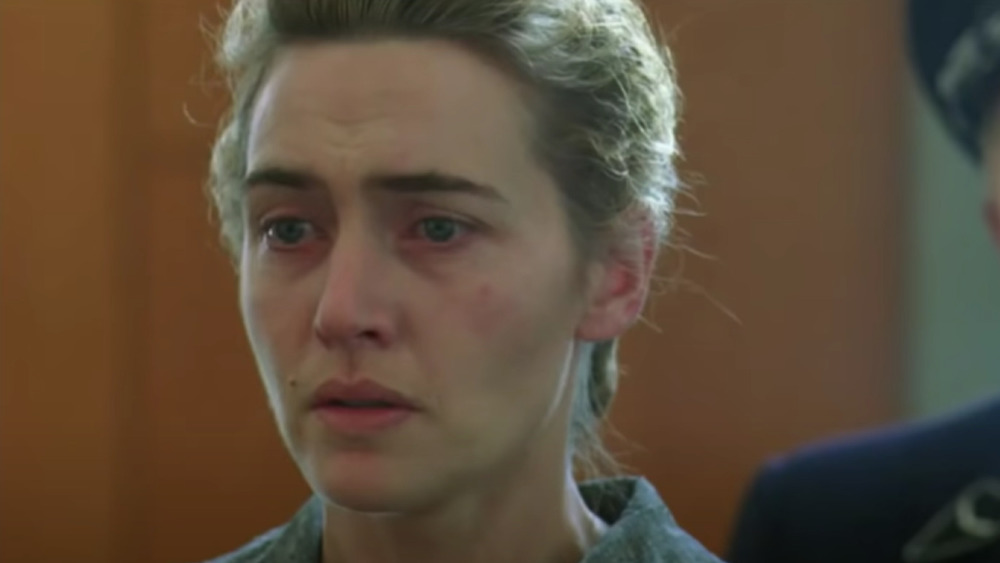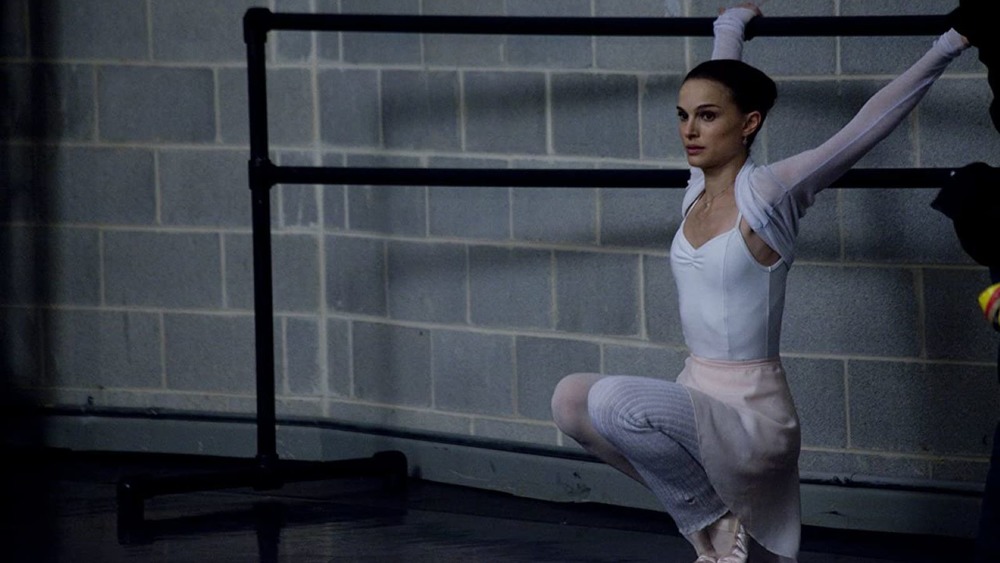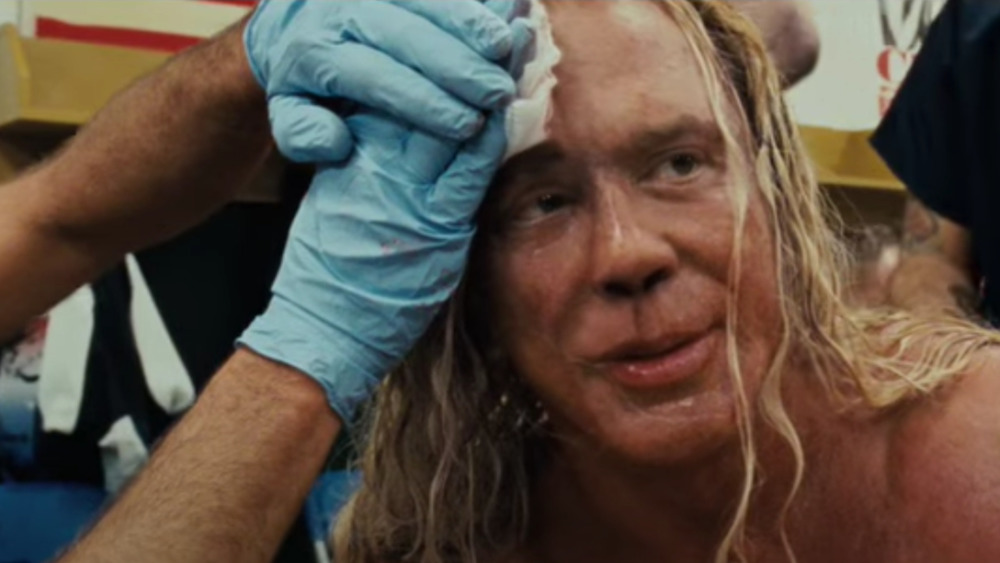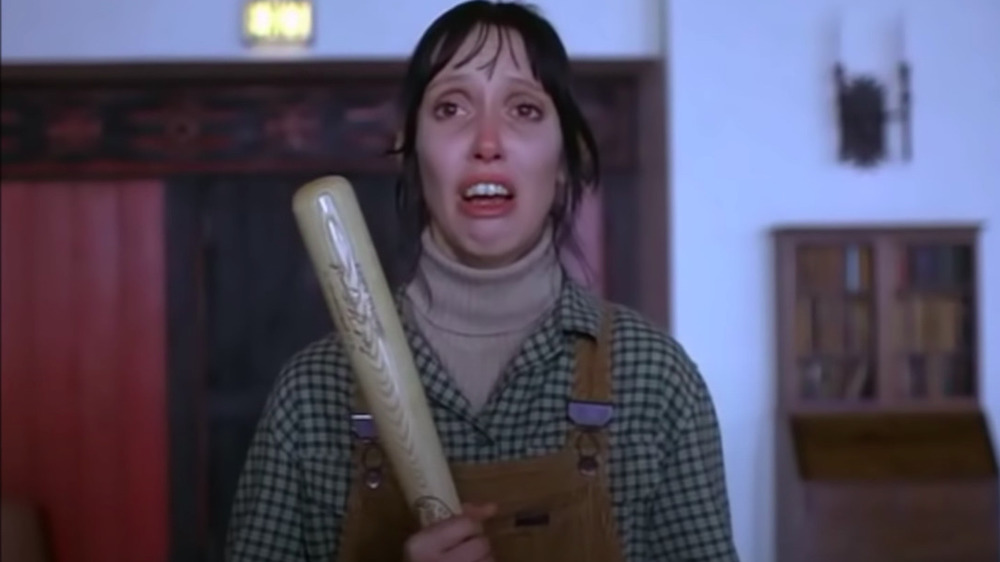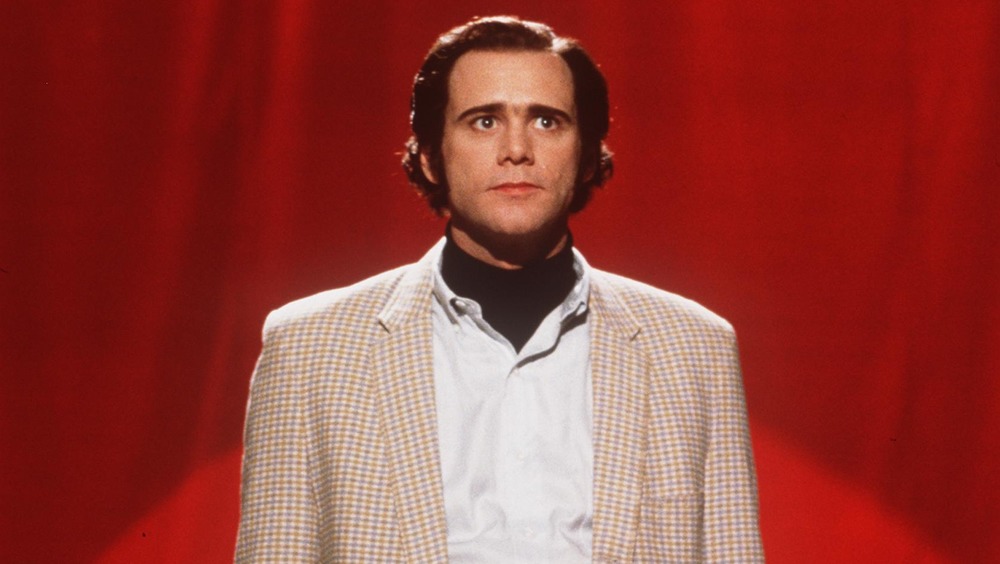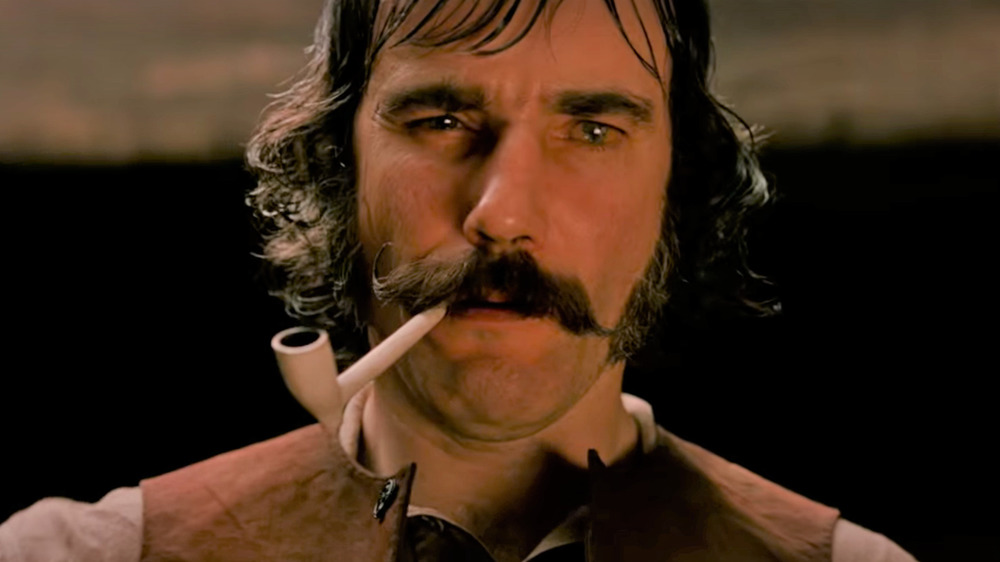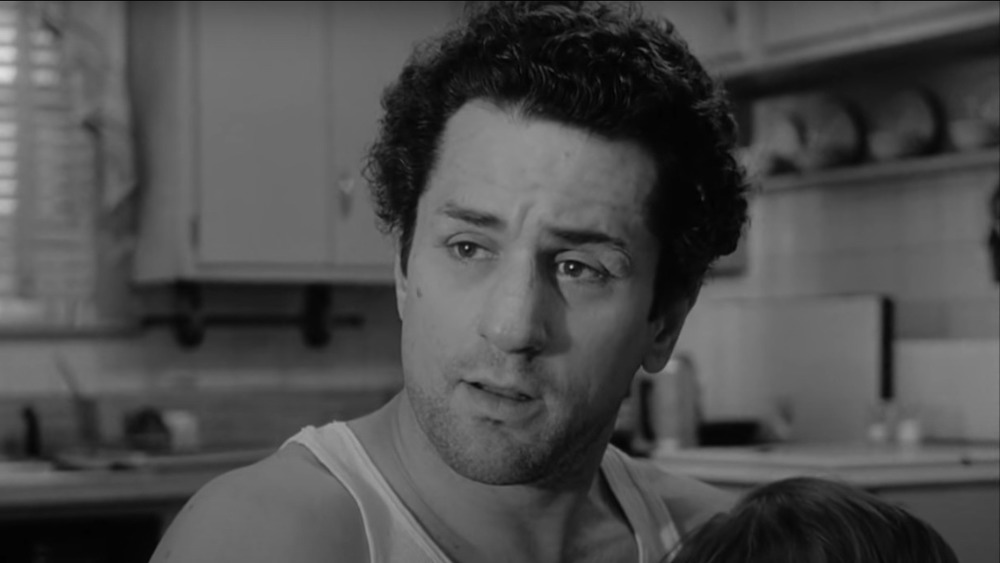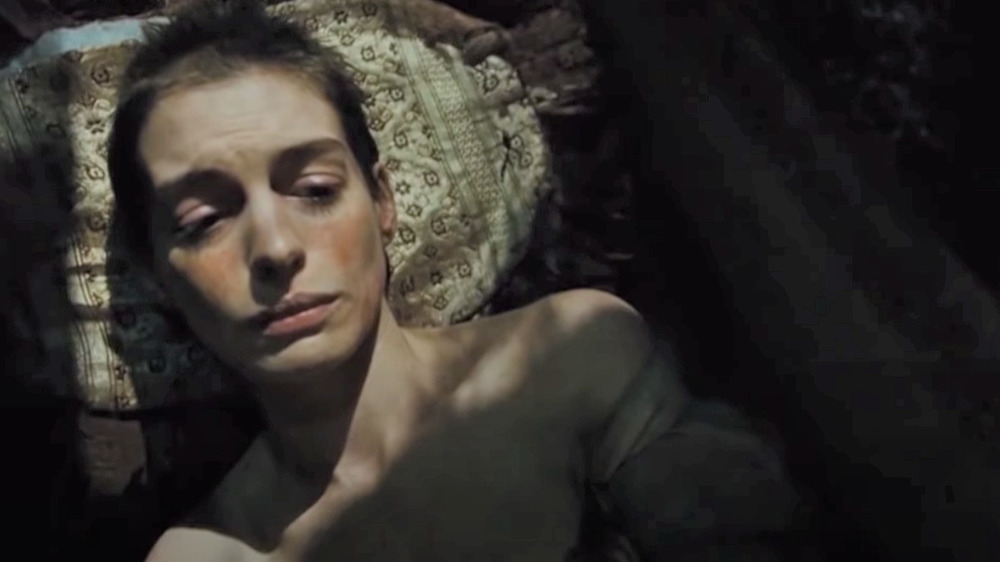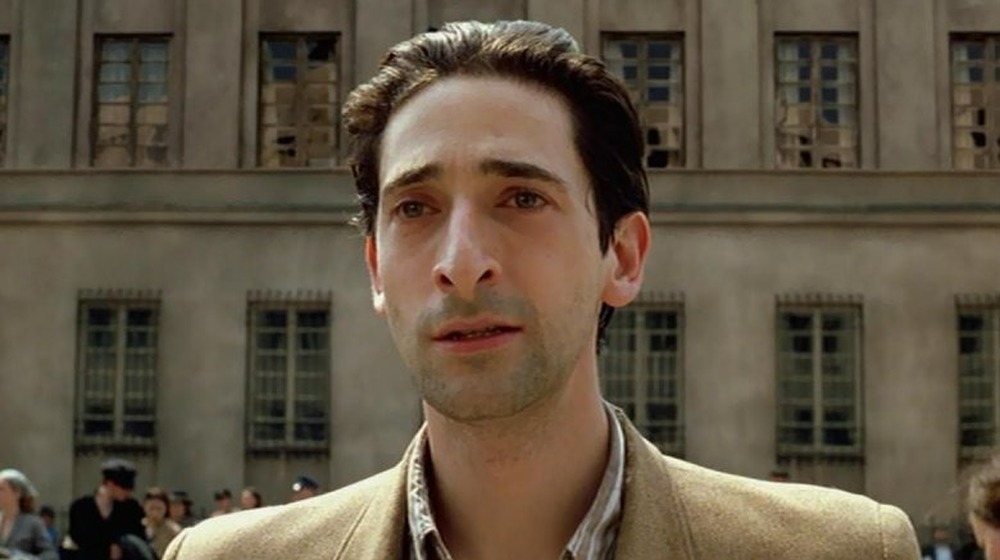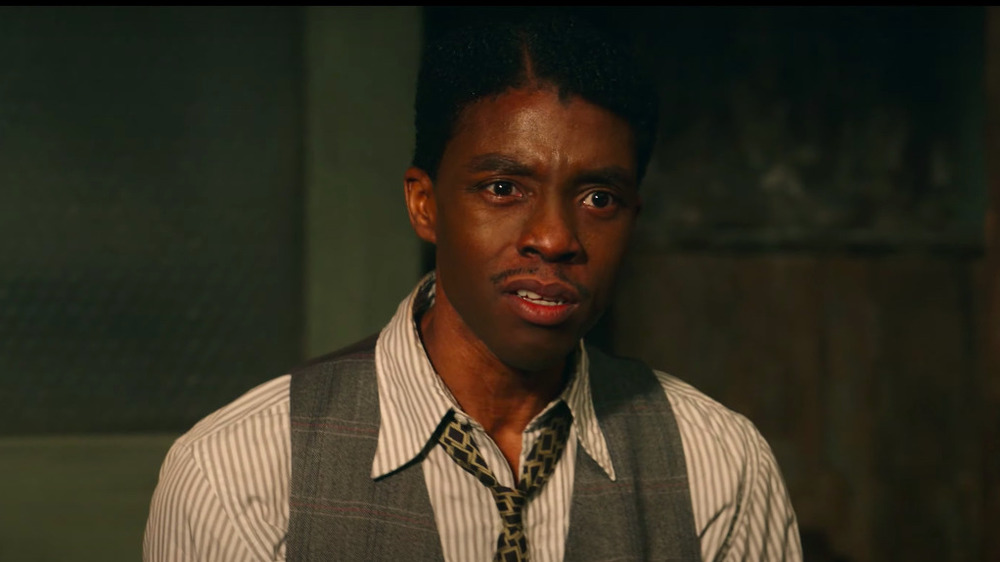Actors Who Put Their Health In Danger For Movie Roles
People often question why it is that Hollywood actors make so much money, when scientists — people who are literally attempting to cure cancer — earn far less. But industry insiders explain that one thing that justifies actors' high pay is the incredibly grueling (both physically and mentally) work (via Enhesa).
The days on set can be extremely long, both for actors and off-screen talent, often starting in the morning and going well into the evening. Accordingly, set work has been associated with medical conditions like fatigue and sleep deprivation, according to Enhesa, a global environmental and safety consultancy. There are workplace accidents to worry about as well, for both the actors who participate in risky stunts and the on-set staff who help make those stunts possible. The risks are further compounded for actors, particularly those who practice method acting and those whose roles require extreme transformation.
As we can see from these actors who put their health in danger for movie roles, working on a film is not always safe.
Matthew McConaughey: Dallas Buyers Club
For his role as Ron Woodruff in 2013's Dallas Buyers Club, Matthew McConaughey decided that he had to appear believable onscreen as an AIDS patient, he told Graham Bensinger in a January 2021 interview. One of the most observable symptoms of HIV is "wasting syndrome," which refers to an unintended weight loss of at least 10 percent of one's body weight (via U.S. Department of Veteran Affairs). For a man of McConaughey's usual size — 181 pounds, he told The Daily Beast – that's just a hair over 18 pounds. Guess how much McConaughey lost? Nearly 50 pounds. And guess how long it took him? Under five months.
McConaughey has staunchly defended the soundness of his decision to literally embody the notion of terminal wasting, claiming he worked closely with nutritionists to do so safely. He told Bensinger that his senses were heightened and he required little sleep. However, losing more than two pounds per week, as McConaughey did, is generally frowned upon by experts and could have put McConaughey at risk for numerous health problems, including loss of muscle, a drop in metabolism, and gallstones (via Healthline).
Jared Leto: Dallas Buyers Club and Chapter 27
Like Matthew McConaughey, Jared Leto lost a considerable amount of weight for his role in Dallas Buyers Club. "I got down to 116 or something," Leto told E! News in 2013. "I just basically didn't eat." Leto is 5 feet, 11 inches tall, but his frame is smaller than that of McConaughey's. He usually weighs about 148 pounds (via Twitter). Nevertheless, his weight loss clocked in at around 20 percent of his normal weight. However, Leto's weight loss may have been even more dangerous than McConaughey's because his occurred after he had already gained a lot of weight to play Mark David Chapman, the man who murdered The Beatles' John Lennon.
To play Chapman in the movie Chapter 27, Leto gained 70 pounds, he told FilmFestivals.com. "I really wanted to inhabit this guy's skin," he remarked. However, once he'd finished shooting, he "immediately started fasting" to get back to his original weight.
Nevertheless, gaining and losing weight is incredibly risky. "Body-weight fluctuation is a risk factor for death and coronary events" — even in people who have not been diagnosed with cardiovascular disease, according to a 2017 study published in The New England Journal of Medicine.
Christian Bale: American Hustle, The Machinist, Vice, and more
For his role in 2004's The Machinist, British actor Christian Bale lost 60 pounds — becoming almost skeletal in the process (via E! News). He then gained it all back and then some, while also getting super ripped for roles in The Fighter, for which he won an Academy Award in 2011, and The Dark Knight trilogy. For the 2013 film American Hustle, he packed on 40 pounds, and did it once more for the 2018 film Vice. He then dropped a whopping 70 pounds to play a race car driver in 2019's Ford v Ferrari.
If you consider the dramatic weight transformations that some other actors have undergone for the sake of their art to be "yo-yo dieting," then what would you call Christian Bale's? We'd be inclined to call it "bungee dieting," except that the odds of dying while bungee jumping are a mere one in 500,000, whereas the risk of dying that is associated with weight fluctuation is significantly higher, as highlighted in a 2017 study published in The New England Journal of Medicine.
Kate Winslet: The Reader and Revolutionary Road
Sometimes the toll a role takes on an actor's health is not physical, but emotional. That's how it was for Kate Winslet in playing Nazi guard Hanna Schmitz in the film The Reader and April Wheeler in the film Revolutionary Road – both of which were released in 2008. Winslet didn't have to lose or gain weight or perform any stunts to play these roles, but she was transformed by them just the same. "At the end of both of these experiences, I felt like I couldn't speak," she told Cleveland.com in a 2008 interview.
"Hanna Schmitz is an unbelievably distraught character for any actress to play," she explained. And playing April Wheeler, one half of a suburban couple whose bright and beautiful exterior belies their deep, existential misery and dread, was for Winslet an exploration of feeling "morally uncomfortable." As a result, though, these roles had an impact on the star's mental health. "Playing all of those things simultaneously drove me insane," she revealed.
Natalie Portman: Black Swan
Natalie Portman won the Academy Award for best actress of 2010 for her role as the emotionally disturbed prima ballerina, Nina Sayers, in Black Swan, which itself was nominated for multiple Academy Awards, including best film. But apparently, Portman's health suffered dearly as a result. In an interview with Independent, she described the physical and emotional struggles that she endured in order to embody the character.
As the Independent reported, Portman subsisted on "little more than carrots and almonds" and "spent eight hours a day in rehearsals" while training for her role as the ballerina. And those protracted rehearsals, which included intense dancing, left Portman with a dislocated rib.
Already slim to begin with, Portman lost 20 pounds, and admitted, "There were some nights that I thought I literally was going to die." Ultimately, playing Nina Sayers brought Portman as close as she had ever been to truly understanding "how you could get so wrapped up in a role that it could sort of take you down."
Mickey Rourke: The Wrestler
In July 1982, actor Vic Morrow and two child actors were killed on set of Twilight Zone: The Movie while performing a highly physical scene, according to History. Although known as one Hollywood's most tragic on-set accidents, it's far from the only one. Even trained stunt professionals are not immune to accidents. In 2017, a stuntman fell to his death while filming The Walking Dead, according to NBC News. Knowing the extreme risks, many actors refuse to do their own stunts. Mickey Rourke, however, is not one of those actors.
Rourke was already in his 50s when he insisted on performing his own stunts for the 2009 film The Wrestler. "You had an actor who is not 20 years old who was doing some very highly physical stunts," Joseph Finnegan, vice president of Fireman's Fund, a Hollywood productions insurer, told Bloomberg News (via Arkansas Democrat-Gazette). Those stunts put Rourke at such a high risk of physical harm — not to mention death — that The Wrestler earned the title of "hardest-to-insure among Oscar-nominated films" that year.
Shelley Duvall: The Shining
Actress Shelley Duvall went through enormous physical and emotional suffering while making 1980's highly acclaimed horror movie The Shining, according to a candid interview she gave to The Hollywood Reporter – the emotional scars of which may have never healed. Much of Duvall's work, playing the isolated, emotionally abused wife of Jack Nicholson's character Jack Torrance, involved working herself into a panic, channeling feelings of terror, and crying hysterically for large portions of the intense shoot. And the shoot was a long one, with 16-hour days, six days per week.
"To wake and realize that you had to cry all day, I don't know how I did it," Duvall said. And even if director Stanley Kubrick hadn't subjected his actors to an exhausting shooting schedule and an alleged 'cruel streak' that affected Duvall deeply, the emotional content of the role of Wendy Torrance would have, and apparently did, impact Duvall's mental health. A full 40 years after the filming, Duvall burst into tears when the interviewer played the scene from the film in which Wendy swings a bat at a terrifying Nicholson.
Maria Schneider: Last Tango in Paris
French actress Maria Schneider was emotionally scarred from her experience making the 1972 film Last Tango in Paris, according to the Daily Mail. Just 19 years old and new to the film business, Schneider felt continually emotionally manipulated by director Bernardo Bertolucci who, Schneider alleged, would blow inexplicably hot and cold on set. Worse, however, was her experience filming the now infamous sex scene with Marlon Brando.
The scene wasn't in the script, Schneider told the Daily Mail. "It was Marlon who came up with the idea," she began, and she was only told about it immediately before filming. "I felt humiliated and to be honest, I felt a little raped, both by Marlon and by [director Bernardo] Bertolucci. After the scene, Marlon didn't console me or apologize."
Although the sex in the film was simulated, Schneider's tears were 100 percent real — as is her perception of having been assaulted. This makes sense, given that sexual assault is defined as "any sort of sexual activity in which a person is involved against their will," per the American Association for Marriage and Family Therapy.
Jim Carrey: Man on the Moon
Jim Carrey put his mental health in jeopardy to play eccentric late comedian, Andy Kaufman, in 1999's Man on the Moon. And that may be an understatement, according to Carrey himself (via The Hollywood Reporter). So powerful was Carrey's transformation into Kaufman that it inspired a documentary, Jim & Andy: The Great Beyond – The Story of Jim Carrey & Andy Kaufman.
The documentary fascinatingly illustrates the extreme lengths that Carrey went not just to "play" Kaufman, but to fully embody the man — or, perhaps to allow Kaufman to fully embody him. Such lengths may have risen to "dissociative" levels for Carrey, who claims that during filming, only Kaufman was present. Carrey, himself, had been supplanted.
Episodes of dissociation involve a "disconnection between a person's thoughts, memories, feelings, actions, or sense of who he or she is," according to Psychiatry.org. While everyone experiences dissociation to some extent during periods of daydreaming, extended episodes borne of traumatic experience (such as playing a troubled comic who died tragically at age 35 of lung cancer, perhaps?) can be destabilizing and interfere with one's ability to cope with real life. The experience became "psychotic at times," Carrey admitted to The Hollywood Reporter.
Daniel Day-Lewis: Gangs of New York
Daniel Day-Lewis is famous for "method acting," in which an actor fully inhabits their role rather than just impersonating it, according to the Independent. For 1993's In The Name of The Father, he lived as a prisoner, sleeping in a jailhouse and eating rations. Some years earlier for his role as paralyzed poet Christy Brown in 1989's My Left Foot, he remained in a wheelchair for the entirety of the shoot. In 1992's The Last of The Mohicans, he refused to eat anything he hadn't caught or foraged himself. But it wasn't until he made 2002's Gangs of New York that Day-Lewis' extreme method acting came scarily close to endangering his health.
As the film took place during the mid-Victorian age, the actor insisted on wearing a "threadbare" coat because that was what existed as far as outerwear during the 19th century. He ended up catching pneumonia — but that wasn't the only threat to his health. While he enjoyed playing his character, he admitted, "I went mad, totally mad." He continued, saying, the role "was not so good for my physical or mental health."
Robert De Niro: Raging Bull
Starring in Raging Bull as the boxing champion Jake LaMotta was the toughest role Robert De Niro ever took on, the actor confirmed in an interview with The Hollywood Reporter. The reason? All the grueling physical training combined with the 60-pound weight gain that he needed in order to film a single scene.
To put on the amount of weight required for De Niro to look like the declining LaMotta, De Niro spent four months in Europe gorging on pasta. But it wasn't all hedonistic fun for De Niro, who told Vanity Fair that it's as hard or harder on the body to gain so much weight quickly than it is to lose it. And that sudden weight gain led to some immediate health consequences, including labored breathing. De Niro wasn't the only one worried about the toll the weight gain took on his health. His director, Martin Scorsese, for whom he gained the weight, expressed concern as well.
Anne Hathaway: Les Misérables
Anne Hathaway's musical and dramatic performance as the French peasant Fantine in the film adaptation of Les Misérables earned her an Academy Award for best supporting actress. But it came at a steep price. The significant weight loss (which Newsweek reported to be 25 pounds) Hathaway achieved in order to play Fantine at her most attenuated took an enormous toll on Hathaway's health — both physical and mental.
In 2019, Hathaway told People that she had lost most of the weight in just two weeks, which left her feeling ill. "That weight loss was not a long-term good thing for my health," the actress explained. "It took a really long time to come back from it." She also admitted to People, saying, "I didn't know anything about nutrition. I taxed my body, and my brain bore the brunt of it for a while. I just felt very anxious and very lost at that time."
Adrien Brody: The Pianist
It's been a while since Adrien Brody won the Academy Award for best actor for playing Jewish composer Władysław Szpilman in Roman Polanski's film The Pianist. Nevertheless, it's that role that still draws the most attention for Brody, according to IndieWire. And that attention is often related to the emotional toll that playing Szpilman took on Brody. "I had to sacrifice large parts of my personal life," he told IndieWire. Preparing for the role also required Brody to subsist on very little food.
The discomfort this caused for Brody did not simply end when shooting ended. In fact, Brody told IndieWire that he spent most of his post-Pianist life as a bit of a nomad — couch-surfing with friends who would host him as he attempted to steer his life back on track. "I was depressed for a year after 'The Pianist,'" Brody explained. "And I don't suffer from that, generally. It wasn't just a depression; it was a mourning." He continued, "I was very disturbed by what I embraced [in making that film], and of the awareness that it opened up in me."
Chadwick Boseman: Ma Rainey's Black Bottom
When Chadwick Boseman died of colon cancer in August 2020 at just 43 years old, many people were surprised because Boseman had, for the most part, kept his diagnosis a secret (via The Hollywood Reporter). Diagnosed at stage 3 in 2016, Boseman continued making movies until he finished his work on the 2020 Netflix film Ma Rainey's Black Bottom, even after his cancer had progressed to stage 4.
Boseman had his reasons for keeping his illness a secret, including not wanting to burden others and valuing his privacy. But it meant that Boseman was sometimes suffering in silence with what his longtime agent, Michael Greene, termed "hard-core pain."
Of course, working isn't what cut Boseman's life short. Although working through pain and illness was physically and emotionally challenging for Boseman and may have put his already precarious health at further risk, it nevertheless fortified him, according to his longtime producing partner Logan Coles. "Tell 'em what we did. Tell them all the work that was done and what I had to go through to tell those stories," Boseman implored of Coles in their last work-related conversation (via The Root).


